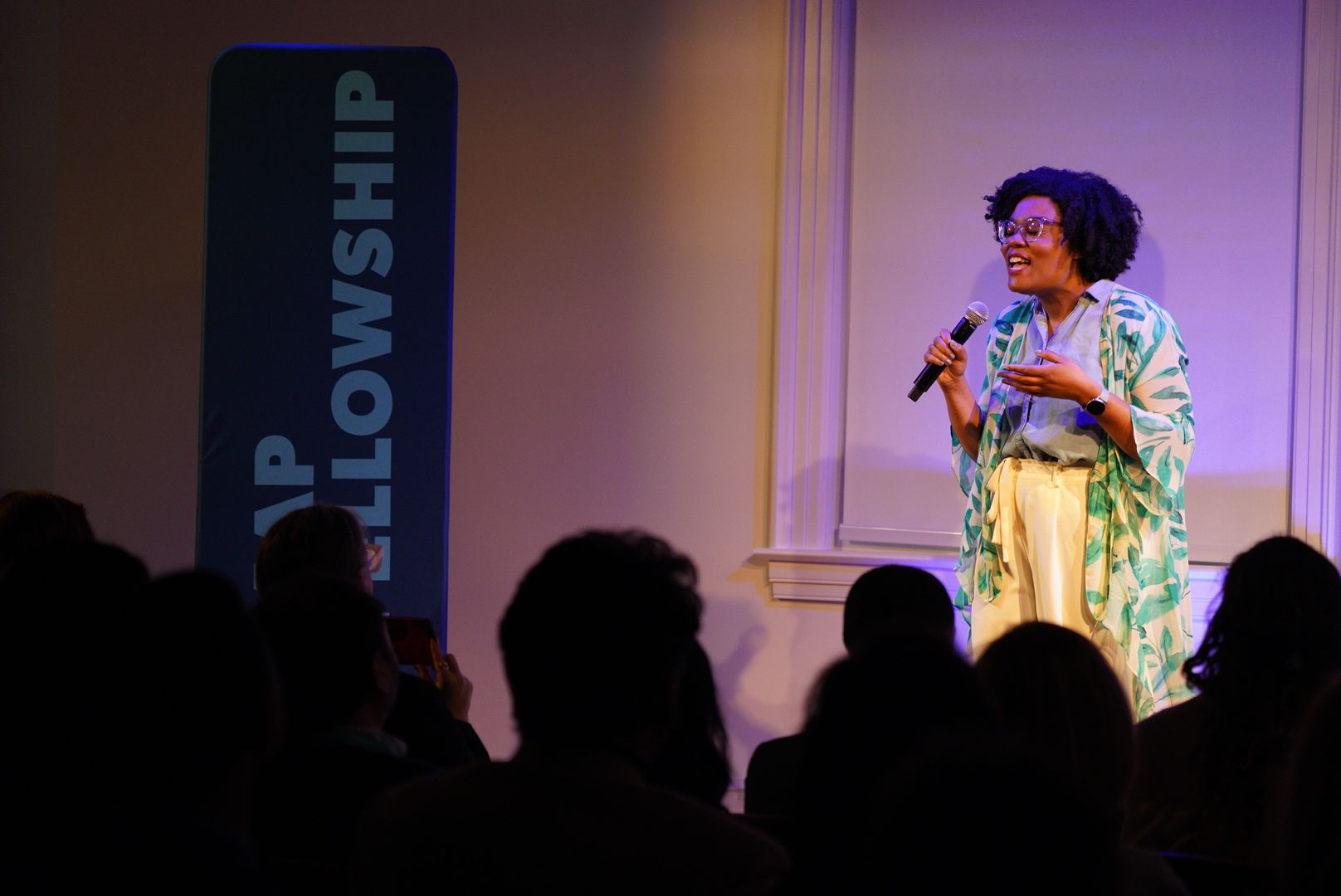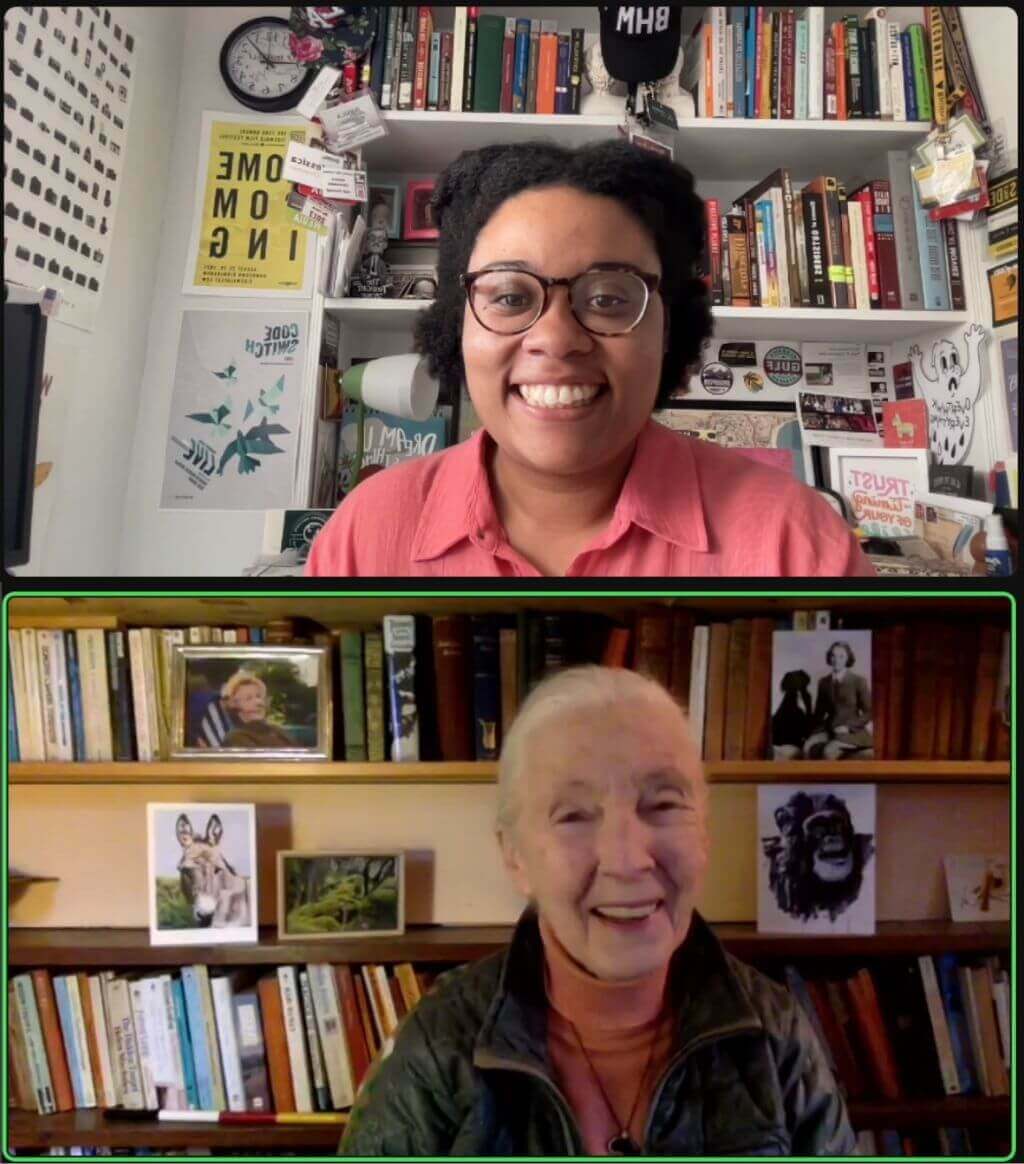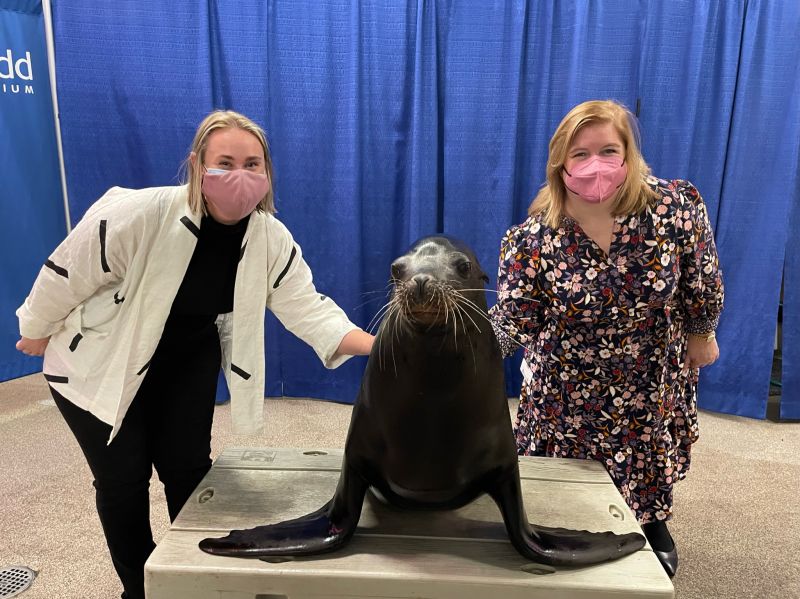
Looking for an opportunity to contribute your skills to the non-profit sector while benefitting from mentorship and learning from industry leaders? The Morgridge Acceleration Program (MAP) Fellowship may be the opportunity for you! This six-month program matches emerging social impact leaders with nonprofit executives in a variety of sectors, who they collaborate with (primarily virtually) to develop a sustainable, creative solution to an executive-level challenge.
In addition to the opportunity to create change through hands-on impact, Fellows are provided with coaching, networking opportunities, and travel to conferences and workshops. All expenses associated with the MAP Fellowship are fully funded. Applications typically open in August and close in October.
We spoke with two MAP Fellowship alumni, Jessica Chriesman, who worked with the Jane Goodall Institute, and Megan McClendon, who was paired with Shedd Aquarium, to learn more about a day in the life of a MAP Fellow and how this Fellowship contributed to their personal and professional growth.
What inspired you to apply for the MAP Fellowship?
Jessica: I studied Filmmaking, and I’ve been working mostly in non-profit communications since I graduated. In 2020, I was working with a non-profit that served rural communities in Alabama when I discovered that the MAP Fellowship existed. When I saw that one of the roles was for a Storytelling Fellow, I thought, “I can do that!” 2020 was weird for everybody, and I felt like I wasn’t using all of my skills in the role I was in. I saw the MAP Fellowship as an opportunity to use and develop my skills without necessarily finding a new job. Plus, I thought it was really cool that the Storytelling position was with the Jane Goodall Institute. I was excited to have the opportunity to learn from an organization with a global reach.
Megan: I’m an innovation consultant who specializes in human-centered design, and while I’ve primarily worked on the for-profit side for the majority of my career, I started delving into social impact projects for non-profits. What really appealed to me about the MAP Fellowship was that it was focused on the non-profit world and building a cohort of mentors and Fellows coming together. I love that it focused not only on the organizations, but on helping individuals develop their leadership skills.
What have been some of your primary tasks and responsibilities as a MAP Fellow?
Jessica: The goal of my fellowship was to develop a framework for the Jane Goodall Institute staff to look at and say, “Ok, this is how we tell a story.” To accomplish this, I talked with staff members from around the world, from Upstate New York to Tanzania and everywhere in between. I spoke with them about how they currently share stories across the organization, and during my site visit to the institute’s main office in D.C., we read through all of the interviews and analyzed common themes. After that, I actually got to talk with Jane Goodall herself (which was the highlight of my fellowship!) about how we can share stories of her life and legacy across the world.

Megan: As I began my MAP Fellowship and got to know Shedd Aquarium better, I realized that a challenge the organization was facing was having a hard time connecting with young adults, particularly young adults of color. So the main challenge I went about addressing was, “How can Shedd Aquarium connect with young adults across the world, sparking compassion, curiosity, and conservation for the aquatic animal world?” I did this mainly through virtual empathy interviews with young adults that helped me understand what their values and motivations are. Then, I recruited a group of young adults from different lived experiences to come together with Shedd Aquarium leadership for an afternoon of ideation around what the future might hold for Shedd Aquarium. I also spoke with leaders from other museums and creative agencies to get a better understanding of what was happening across the industry.
What was it like working with a MAP mentor?
Jessica: I talked with my fellowship mentor every week about my fellowship tasks, but we also spoke about my life and career goals. I was offered a new job in the middle of the fellowship, and my mentor helped me navigate that and sort through whether or not I would accept it. I also got to know other staff members within the Jane Goodall Institute really well and joined in on many of their team-wide communications calls and workshops, which I learned a lot from. Another unofficial mentor for me was my MAP Fellowship cohort. I always felt like I could call anyone within the program at any time to ask for advice or just if I needed to chat. Some of the other Fellows have actually asked me to do Storytelling consultations with their own organizations, so it’s definitely a great network!
Megan: Working with my mentor was an experience beyond my expectations. Not only did we navigate addressing the Fellowship challenge together, but she was crucial to me in navigating my own professional growth. My mentor has been at Shedd Aquarium for years, and it’s such a well-known, established organization. I work for a young organization, so she was able to advise me through some professional challenges and on how to grow my career. Near the end of my fellowship, she actually told me, “Just so you know, I’m not leaving you once this is over. I’m still here for you.” That has really stuck with me, and I’ve definitely taken her up on that. It’s a lifelong connection.

What advice do you have for prospective MAP Fellowship applicants?
Jessica: I think anyone who is inspired by one of the organizations, the theme, or just the challenge itself should definitely apply. If you feel a spark when reading through the Fellowship description, just go for it, because that’s what I did. When working on your application, I would advise you to show your personality in your essays. I think I made a joke or two in mine! Don’t be afraid to show who you are, your personality, and your sense of humor in your written responses because you’re going to be working with your mentor for six months. You want to show who you are as a person so they can make sure you will both mesh together.
Megan: My advice for the application don’t be afraid to pour your heart into it. I approached my application with authenticity and heart, and I think that was true for everyone in my cohort: We all led with our hearts. I would also advise applicants to be open to developing your skills through any of the host organizations, even if they aren’t your top choice. In the application, you’ll get to submit your top two picks for which organization you’d like to work with. I wasn’t matched with either of my choices, but the Morgridge Family Foundation really knew what they were doing. Shedd Aquarium gave me the right challenge and the right mentor. It was all the right things for me. One last piece of advice: You’re never too old! I was definitely the oldest Fellow. You’re never too old, never too young, never too anything to jump into something that you’re really curious and passionate about.
Megan McClendon is the Lead of Innovation at Stoked, where she guides others in exploring new ideas, concepts, and futures while creating boundary-pushing experiences. She leads work for government, for-profit, and non-profit agencies focused on innovation for positive social impact through equity-centered design. Her work includes a design project for the Bill & Melinda Gates Foundation’s “Reinvent the Toilet” Challenge, reimagining the test ride for Trek Bicycles’ retail experience, and reimagining exhibits for Chicago’s Harold Washington Public Library.
Seeking more opportunities? Check out our list of 6 Virtual Social Impact Fellowships for Young Professionals.
© ProFellow, LLC 2022, all rights reserved.